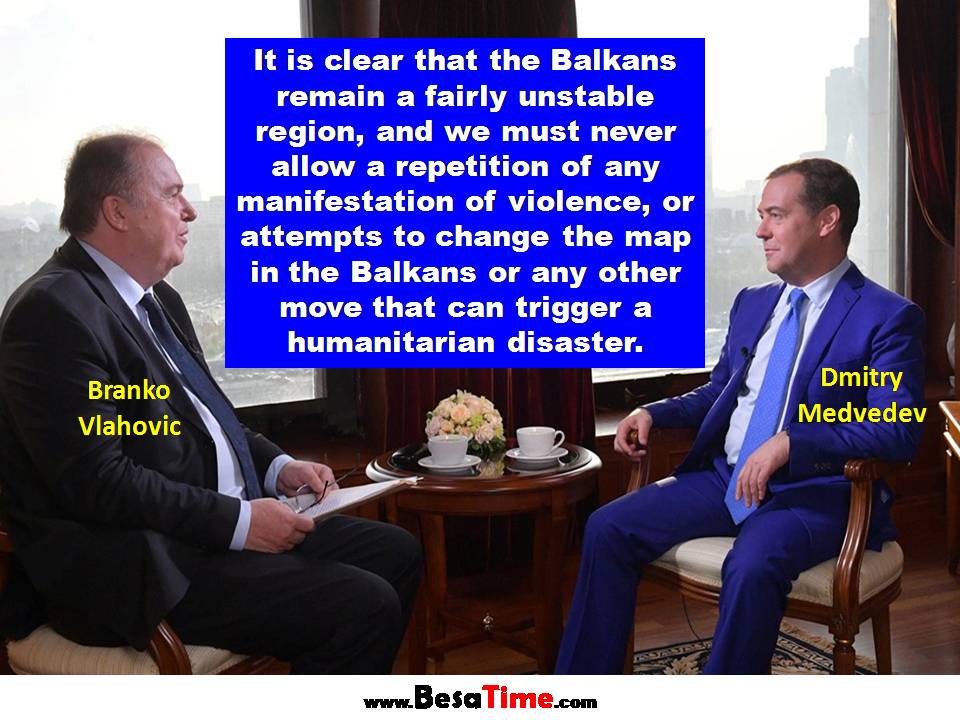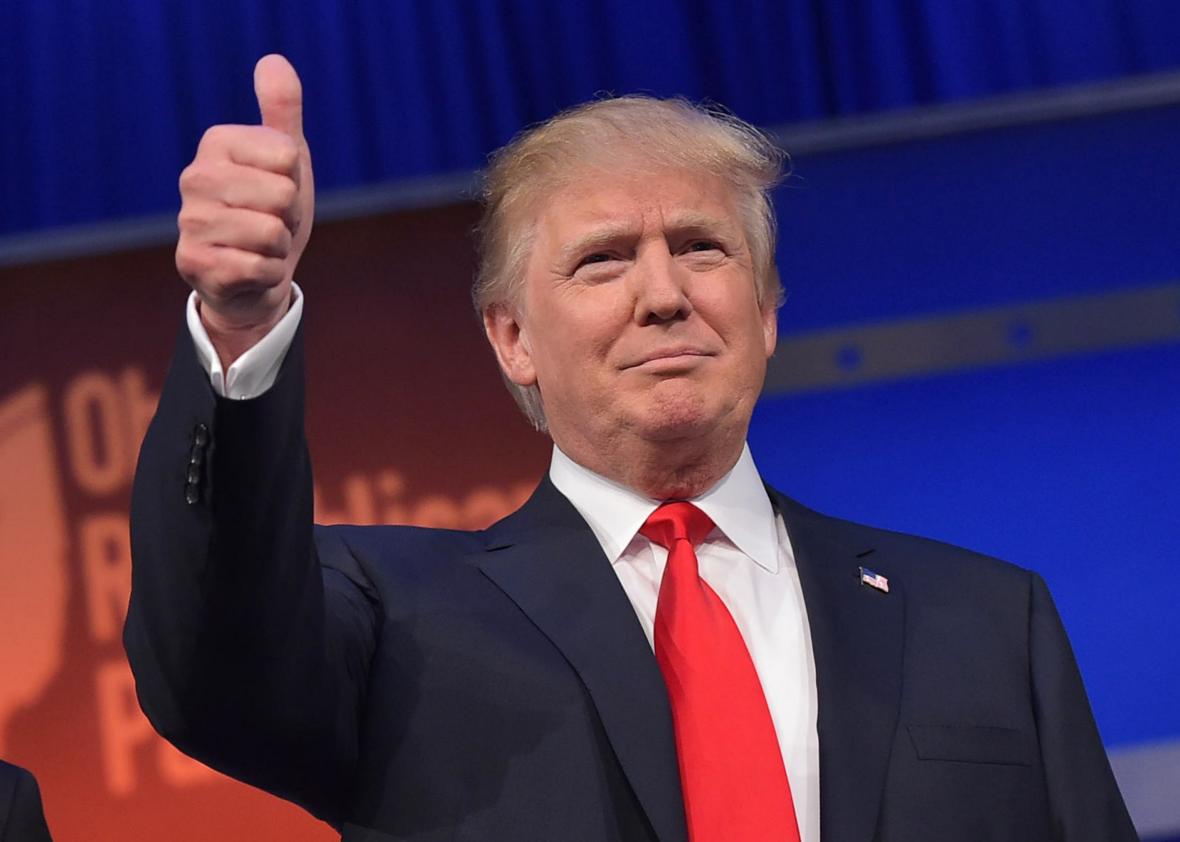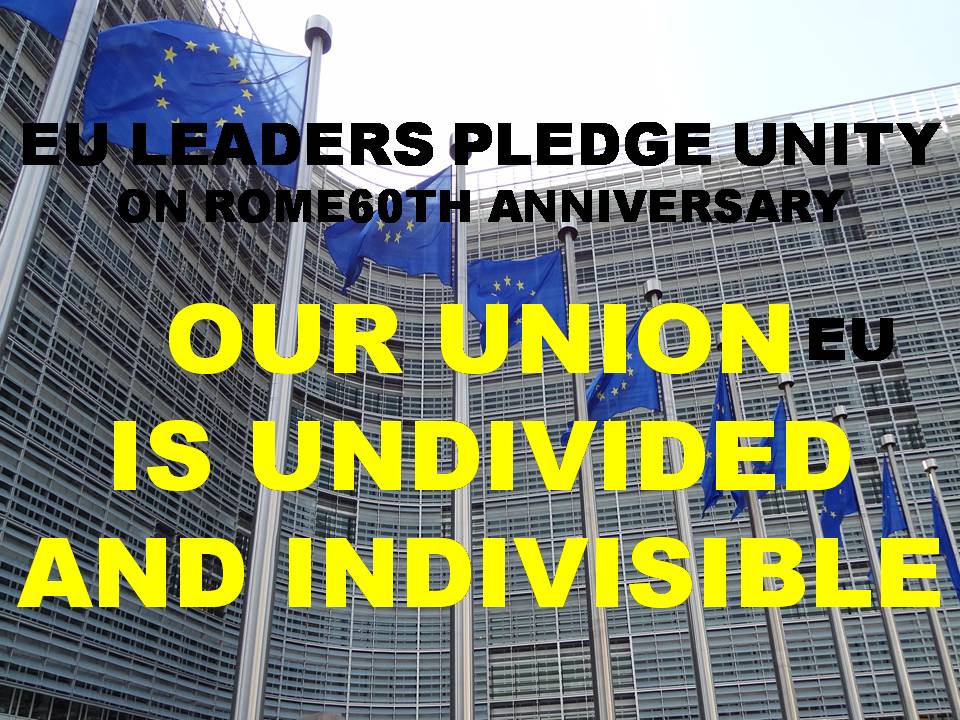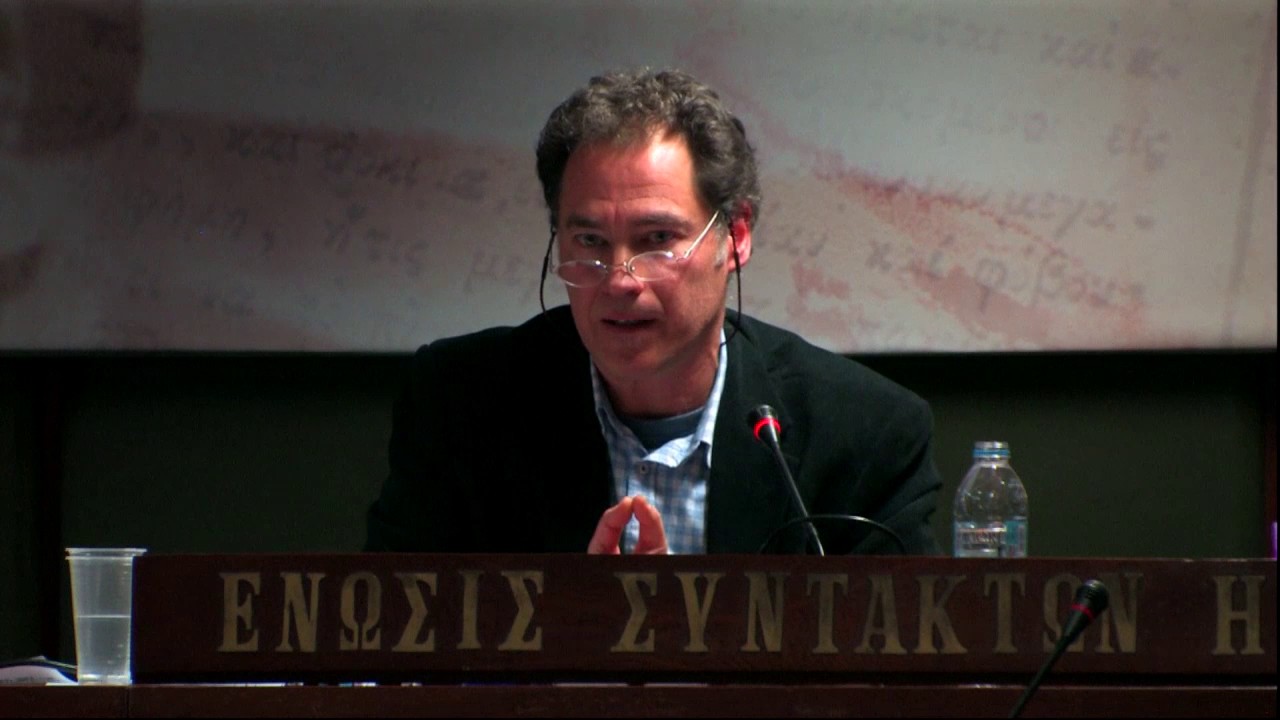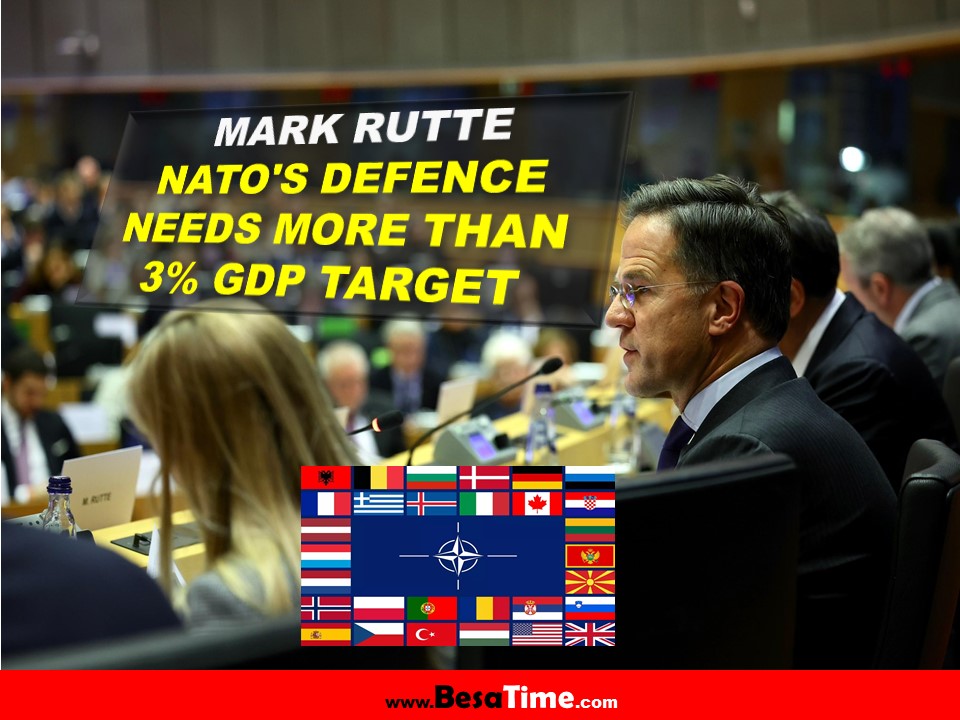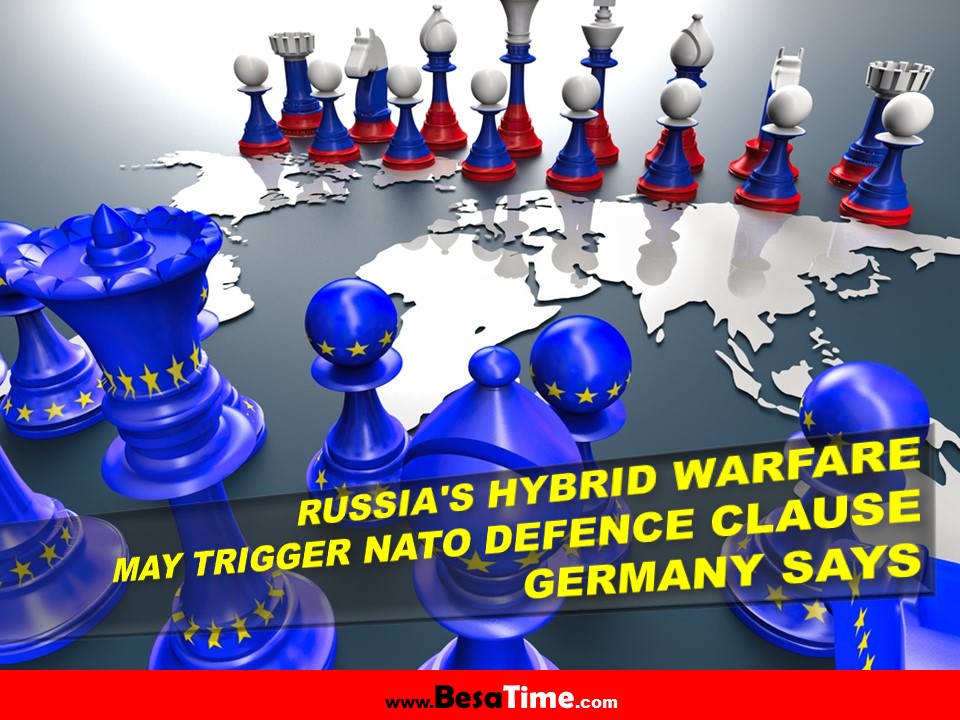
BESA TIME®
True News PortalSWIFT AND CERTAIN PUNISHMENT FOR RUSSIA? │Adam M. Smith FA
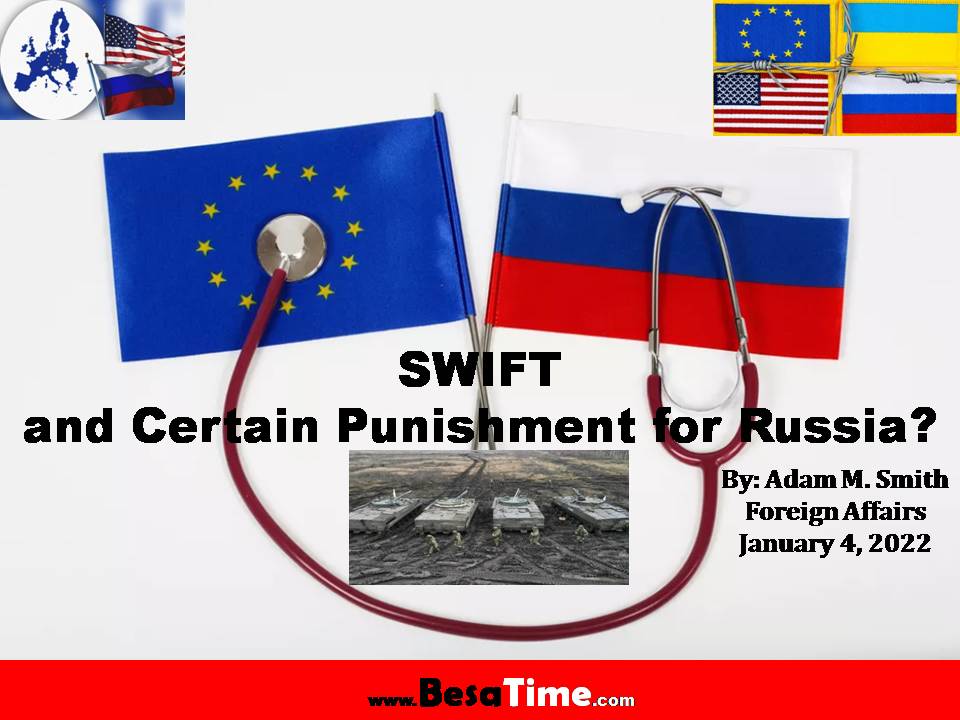
│
SWIFT AND CERTAIN PUNISHMENT FOR RUSSIA?
By Adam M. Smith │ Foreign Affairs
January 4, 2022
Could efforts to sanction Russia end up backfiring on the West?
Adam M. Smith considers the options available to the United States and its allies to deter a Russian invasion of Ukraine.
Adam M. Smith considers the options available to the United States and its allies to deter a Russian invasion of Ukraine.
│
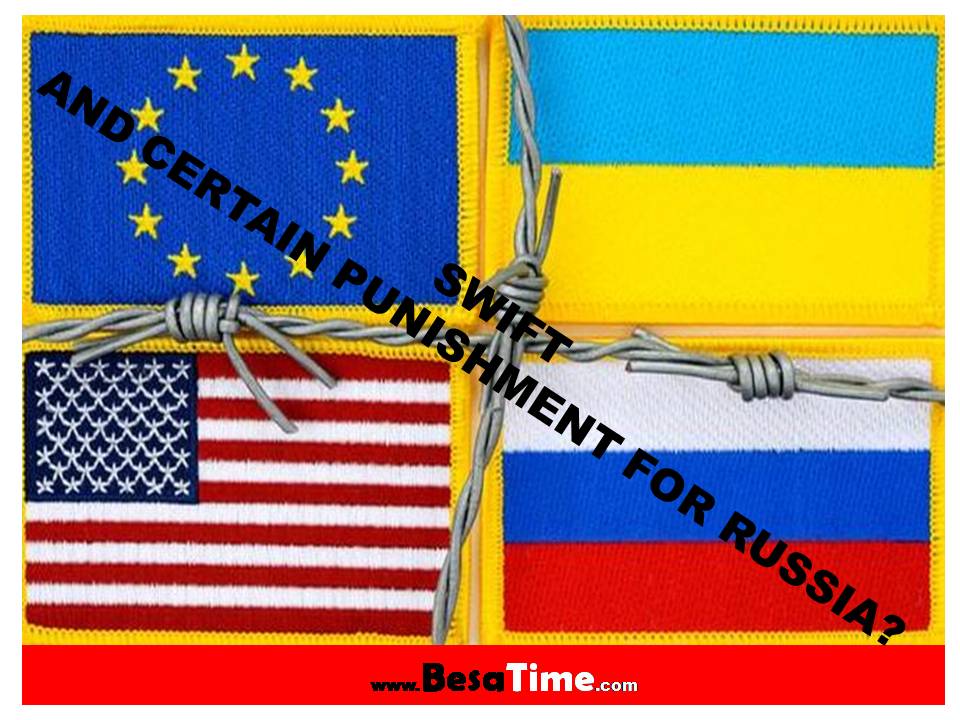
│
SWIFT and Certain Punishment for Russia?
There Are Better Ways to Deter Moscow Than Threatening Its Banking Access
In 2014, as Russia solidified its control over Crimea and supported separatist forces in eastern Ukraine, policymakers on both sides of the Atlantic struggled with how best to respond. Although U.S. and EU officials quickly settled on sanctions as a core element of the response, there was significant debate regarding how aggressive the penalties needed to be. On the one side were officials, principally in the United States, who pushed for the most severe sanctions possible, including the blacklisting of major Russian financial, energy, and defense companies and the imposition of restrictions on transactions involving Russian sovereign and private debt.
Many also suggested following the playbook Washington had used in its dealings with Iran by removing Russian banks from the SWIFT network, the central communications platform through which financial institutions send and receive information about transactions, trade instruments, and payments. That proposal in particular clearly alarmed the Kremlin. Dmitry Medvedev, then the Russian prime minister, warned that limiting Russian banks’ access to SWIFT would be akin to an “act of war.”
In the end, none of that happened. More moderate voices from across the political spectrum in both Washington and Brussels prevailed. These policymakers raised concerns that applying such measures to Russia risked significant collateral consequences. European and U.S. businesses could see their substantial investments in Russia imperiled, the Kremlin could strike back by threatening to cut off gas flows to Europe, and a broader financial crisis could be set off if the Russian economy faltered. Consequently, rather than applying a sweeping set of restrictions, the United States and the EU took a piecemeal approach. Crimea was declared off limits to U.S. and European business, and the United States blacklisted some Russian institutions and oligarchs. For the most part, however, Russia’s major financial, energy, and defense companies faced more limited measures, which prohibited U.S. and European parties’ participation in only a narrow set of transactions with certain Russian counterparties. And Russia kept its access to SWIFT.
Today, Washington and its European partners face a similar scenario. Thousands of Russian troops have massed on the border with Ukraine, and the transatlantic alliance is once again assessing which sanctions measures would best deter Moscow from invading. Some of the more aggressive proposals from 2014 have been resurrected, including the idea of threatening to “de-SWIFT” Russian financial institutions. U.S. President Joe Biden reported that in a phone conversation in December, he had warned Russian President Vladimir Putin that Russia would face “severe consequences, economic consequences like you’ve never seen”—which many took as a thinly veiled reference, in part, to cutting Russia off from SWIFT.
Doing so would undoubtedly shake things up. But the costs would be high and the benefits uncertain. Russia would take a hit but would likely adapt fairly quickly and would be able to strike back in potentially painful ways. Whatever happened, China would be paying close attention. If Washington tried but failed to hobble Russia’s economy, it could hurt future U.S. efforts to deter China from its own aggressive moves. Meanwhile, China would be able to learn a great deal from Russia’s efforts to push back—so that if Beijing ever found itself facing a similar threat, it would have a better idea about how to craft a response.
WHAT IS SWIFT?
SWIFT is a decidedly and purposefully prosaic feature of the global financial system. It is solely a means of information exchange; SWIFT does not hold funds or move money or assets. Before it was launched in 1973, banks accomplished the same tasks that SWIFT carries out by sending telexes or making phone calls. And they still could. The value of SWIFT is its speed and the size of its network: banks desire access to it because so many other financial institutions rely on it as their principal means of interbank communication. As a result, removing Russian institutions from SWIFT would restrict their access to the world’s most ubiquitous global financial communications network and force Russian banks to find other means to communicate with financial counterparties.
SWIFT is technically a Belgian company, and it is eager to retain its neutral status as an agnostic instrument, preferring to not repeat what its former CEO Lázaro Campos called the “extraordinary and unprecedented step” of disconnecting politically disfavored banks, as it did with Iranian institutions in 2012. Yet if the United States pushed for that step and the European Union agreed and passed the necessary regulations, SWIFT would have to remove Russian banks to comply with Belgian and EU rules.
And even if the EU disagreed with the policy, there are several ways the United States acting unilaterally could push SWIFT to remove Russian institutions. According to its own rules, SWIFT has the ability to remove members if a member “adversely affected . . . SWIFT’s reputation, brand, or goodwill.” The United States has several means by which it could persuade SWIFT to conclude that Russian institutions had done just that. For example, Congress could proceed as it did in 2012 with the passage of the Iran Threat Reduction and Syria Human Rights Act. That law authorized the imposition of sanctions on entities (including their directors and shareholders) “that provide specialized financial communications services”—that is, SWIFT—“to the Central Bank of Iran or other sanctioned financial institutions.” U.S. Senator Robert Menendez, Democrat of New Jersey, recently proposed a blueprint for Russia sanctions that proceeds in a similar fashion and would all but compel SWIFT to delist Russian banks by threatening sanctions on Russian financial institutions and any entity providing them “services” (again, SWIFT). Numerous lawmakers from both sides of the aisle have expressed support for this approach.
The collateral costs of booting Russia from SWIFT could prove to be high.
Such statutory authority, however, is not even necessary: the executive branch already has sufficient authority to strongly encourage such a move. Under the International Emergency Economic Powers Act, the principal statutory basis for U.S. sanctions programs, Biden could quickly promulgate a new executive order to impose additional sanctions in line with the national emergency that U.S. President Barack Obama declared after the Russian invasion of Crimea in 2014. Such an order could allow sanctions on parties that provide “material support”—including financial messaging services—to specific parties in Russia or even to an entire sector of the Russian economy (such as the financial sector).
Biden could also unilaterally restrict SWIFT’s ability to rely on any part of its network that touches the United States if it continued to service Russian banks. This would not be an idle concern given that significant portions of SWIFT’s technical infrastructure have a nexus with the United States. In that scenario, any SWIFT communication or message that touched a server or a network in the United States would be a violation of U.S. law and would subject SWIFT to potential civil and criminal penalties.
The United States recently imposed such a penalty on Swiss-based SITA, the Société Internationale de Télécommunications Aéronautiques, which is something like the SWIFT of the global civil aviation industry. SITA provides the back-end infrastructure for interairline communications, allowing carriers to send each other secure messages. As with SWIFT, a meaningful portion of SITA’s technical backbone has a U.S. touch point. In 2020, the U.S. Treasury Department levied a multimillion dollar fine on SITA after determining that the company had violated U.S. law by using services with a U.S. nexus to provide SITA’s technical and communications products to airlines, including Iranian carriers that the United States had sanctioned for their involvement in terrorism.
CHINA IS WATCHING
One might reasonably assume that cutting Russia off from the principal communications system of the global banking system would inflict grievous damage on its economy. In reality, although it would take the Russian financial sector some time to adjust, the harm such a cutoff would cause is far from clear. Since 2014, when the notion of stripping Russia’s access first surfaced in Washington, Russia has taken steps to protect itself. For example, it has invested in building its own SWIFT competitor, called the System for Transfer of Financial Messages, which is a local Russian network outside the purview of U.S. sanctions. Russia has also significantly built up its foreign reserves to an all-time high of more than $620 billion, a stockpile that could be deployed to soften any economic blow.
What is more, even if Russian banks were removed from SWIFT, companies and financial institutions in the West—especially those in Europe that rely on Russian gas—would need to find ways of working around any SWIFT restrictions. Businesses and other purchasers of gas that would normally rely on SWIFT messages between their financial institutions and those in Russia would merely revert to pre-1973 modes of communication: telex and telephone calls could process the very same requests for financial transactions, albeit more slowly and less securely.
Meanwhile, the collateral costs of booting Russia from SWIFT could prove to be high. Even if Moscow might not call such a move an “act of war,” it is unlikely that the Kremlin would accept a delisting without imposing its own countermeasures. In the short term, this could include criminalizing compliance with foreign sanctions in Russia, so that companies or individuals who played by the new rules could find themselves facing prosecution in Russian courts. Such a proposal has been pending in the Duma since 2014, although Russian businesses have thus far persuaded Putin that such a move would be imprudent and would cause mass Western divestment from Russia. In the wake of a Russian cutoff from SWIFT, Russian businesses may well lose that argument (or change their minds), and the proposal could become law. Moscow might also speed up its nascent shift away from Western-controlled financial architecture. So far, this has principally involved encouraging oligarchs to repatriate their assets and completing some major energy deals with China denominated in currencies other than the U.S. dollar. If Russia pushed the matter further by requiring cross-border payments to be managed through its System for Transfer of Financial Messages and insisting on denominating transactions in non-Western currencies, it would diminish the force of Western tools of financial pressure in the immediate and long term.
Removing Russia from SWIFT would likely not produce the outcome that policymakers hope.
These consequences would be potentially serious and novel. When Washington and its allies decided to remove Iranian banks from SWIFT, they did not need to concern themselves with any similar blowback. Iran had neither the bureaucratic wherewithal nor the economic heft to impose meaningful countersanctions. But Russia does, and the countermeasures it has imposed already—restricting agricultural imports from the West, for example, and throttling gas flows to Europe—demonstrate that Russia has tools to respond to Western pressure that Iran never had.
Whatever Washington and its European partners choose to do in the event of further Russian aggression, Beijing will be paying close attention. China, after all, is perhaps even more eager than Russia to immunize its activities from Western economic coercion. And China has even more tools already at its disposal to respond. No doubt prompted at least in part by the talk in 2014 of removing Russia from SWIFT, China in recent years has launched its own financial telecommunications system, the Cross-Border Interbank Payment System, to reduce its own vulnerability to Western economic pressure. China has also rolled out a series of countersanctions restricting the ability of Western parties to comply with U.S. and EU sanctions in China and has developed an increasingly robust yuan-based clearing system, all outside the jurisdiction of Western regulations. All these tools have set the stage for even more aggressive pushback if Beijing decides to act. And if Russia proves that it can weather a removal from SWIFT without long-term economic damage, U.S. and European deterrence on Moscow and Beijing would suffer.
MORE THAN ONE WAY TO POKE A BEAR
Removing Russia from SWIFT would likely not produce the outcome that many policymakers hope. But there are some sanctions and other tools that might dissuade Russia from invading Ukraine. On the sanctions front, the United States and European countries could enhance the limited restrictions they currently place on Russian financial, energy, and defense firms, up to the point of fully blacklisting certain institutions. Such a move would have a much more meaningful impact than removing Russian banks from SWIFT, as it would eliminate the ability of the parties to work around SWIFT.
Washington and NATO could also commit to speeding the modernization of the militaries on NATO’s eastern flank (such as those defending Bulgaria, Poland, Romania, and the Baltic states). Ironically, several of these countries continue to rely on military materiel procured from Russian entities that have been under Western sanctions since 2014.
Although each of these strategies is not without risk of incurring Russian blowback, there is one option that the West could implement that would have less risk: Washington and its allies could publicly articulate the specific sanctions and restrictions that they are planning to promulgate prior to their being rolled out, with an equally public recitation of what Russia must do to avoid such consequences. Such a public forecasting has never been carried out in any sanctions program, but in this case it might give Moscow pause—and give Russian businesses an opportunity to weigh in with Putin. Of course, if Washington and its allies were to impose such sanctions or restrictions, Russia would be sure to respond. Yet if they forecasted the measures in advance and gave the Kremlin a clear alternative path, they could avoid escalation—and war—altogether. By Adam M. Smith │ Foreign Affairs
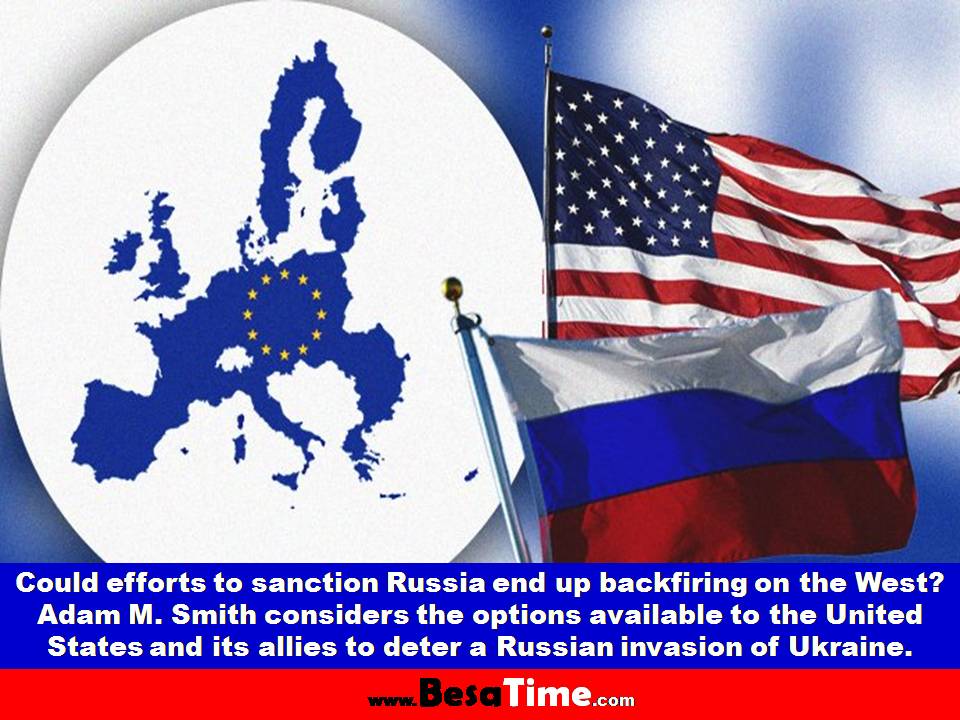
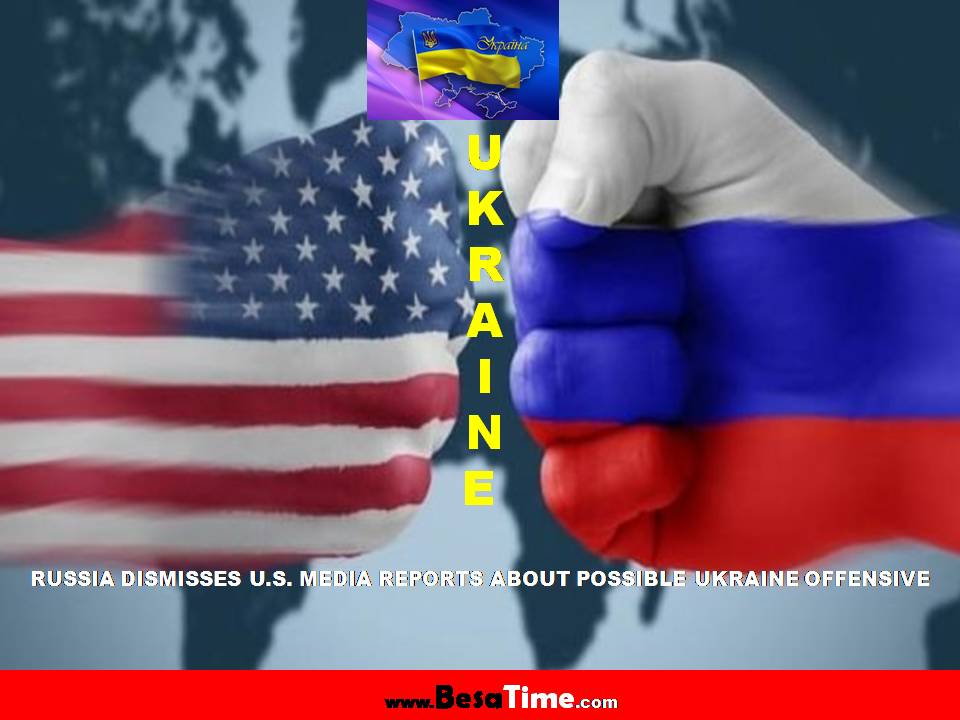
RUSSIA DISMISSES U.S. MEDIA REPORTS ABOUT POSSIBLE UKRAINE OFFENSIVE
RUSSIA DISMISSES U.S. MEDIA REPORTS ABOUT POSSIBLE UKRAINE OFFENSIVE...
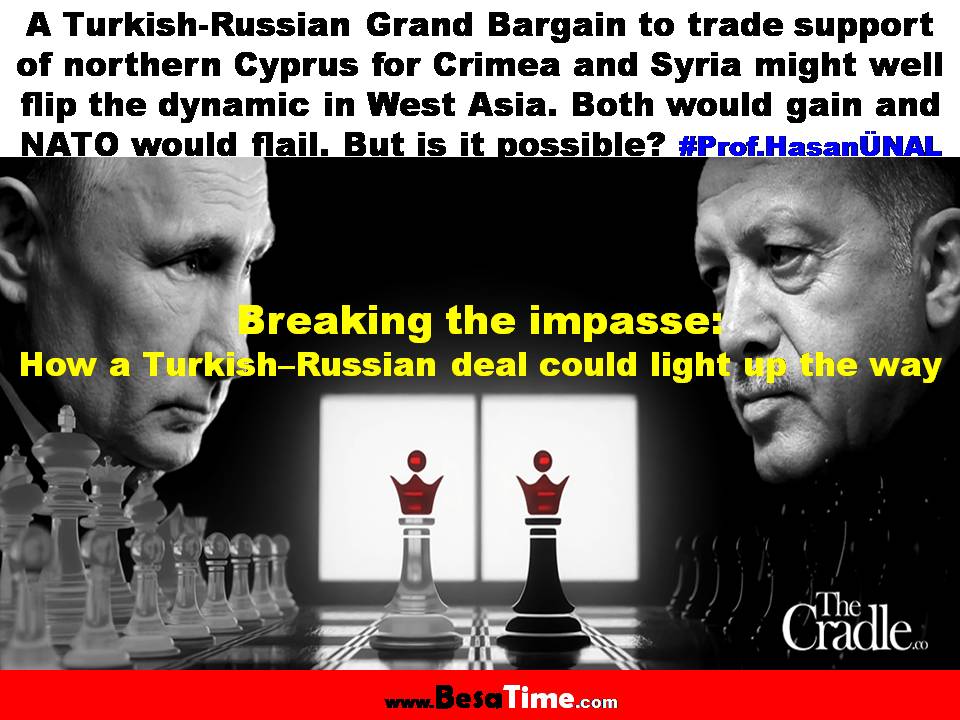
Breaking the impasse: How a Turkish–Russian deal could light up the way
Breaking the impasse: How a Turkish–Russian deal could light up the way A Turkish-Russian Grand Bargain to trade support of northern Cyprus for Crimea and Syria might well flip the dynamic in West Asia. Both would gain and NATO...
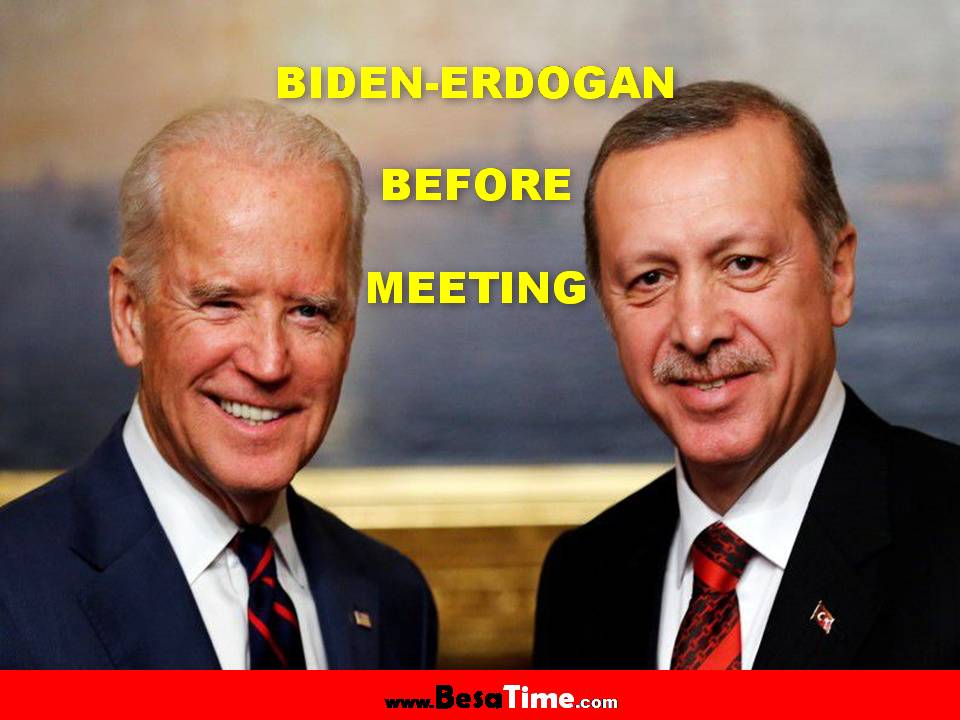
BIDEN-ERDOGAN BEFORE MEETING
BIDEN-ERDOGAN BEFORE MEETING...
IT IS CLEAR THAT THE BALKANS REMAIN A FAIRLY UNSTABLE REGION By: Dmitry MEDVEDEV
IT IS CLEAR THAT THE BALKANS REMAIN A FAIRLY UNSTABLE REGION By: Dmitry MEDVEDEV...
Trump brands claims of compromising material 'sick and phoney'
US President-elect Donald Trump says allegations Russia has compromising material on him are "fake news, phoney stuff", put together by "sick people"....
